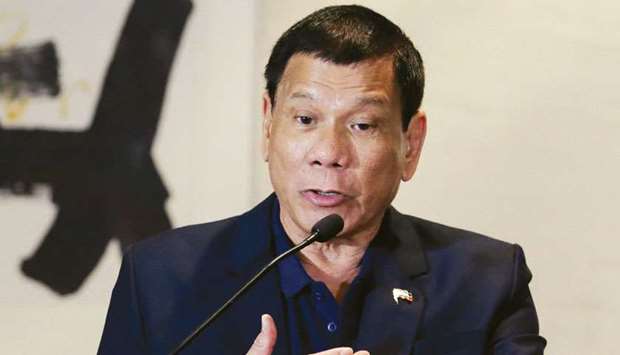Philippine President Rodrigo Duterte will not act on an objection by Japan to a new statue in Manila that commemorates the Filipino “comfort women” who worked in Japanese military brothels during World War II, his spokesman said yesterday.
Relations between the two countries remains “very strong”, Presidential Spokesman Harry Roque told reporters, playing down concern that the statue could hurt relations with Japan, a major source of aid and investment. About 1,000 Philippine women were forced into prostitution by Japanese troops during the war — they are known by the Japanese euphemism “comfort women” — a sensitive issue that had prompted some survivors to demand an apology as well as compensation from Tokyo. Roque said the statue was not an issue for Duterte to get involved in. “It’s up to the people who erected the statue to do anything they want with it,” he said. “I don’t think it is really a diplomatic issue, no.”
The National Historical Commission of the Philippines, a government agency, allowed a foundation to erect the bronze statue in a Manila tourist spot last month. Roque declined to comment on Japanese Internal Affairs and Communications Minister Seiko Noda expressing regret about the statue when she met Duterte on Tuesday.
In comments posted on the ministry’s website, Noda said: “I spoke frankly to the president and I believe he understood”.
Duterte and Japanese Prime Minister Shinzo Abe get along well and have visited each others’ family homes. Duterte has lauded Japan for its “preeminent and peerless role” as a big investor and development partner. A spokeswoman from Japan’s Ministry of Foreign Affairs said it was “extremely regrettable” that comfort women statues including the one in the Philippines had been erected. Last year, Japan temporarily recalled its ambassador to South Korea over a statue commemorating Korean women forced to work in Japanese military brothels during World War II. South Korean activists estimate that there may have been as many as 200,000 Korean victims. A Philippine women’s group called Gabriela said Japan aimed “to erase any trace of their country’s brutality to the world and we should not allow them to have their way on historical revisionism”.

President Rodrigo Duterte
